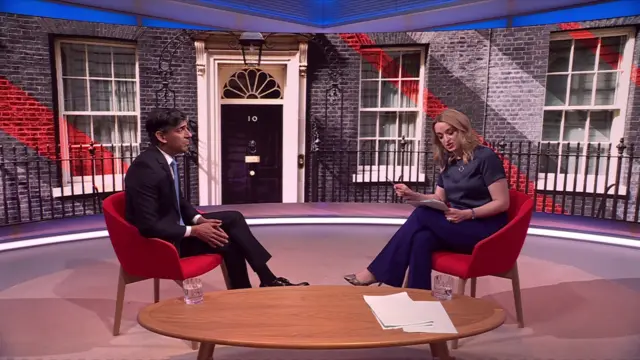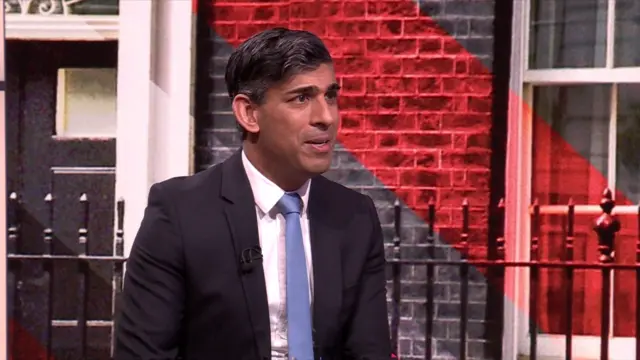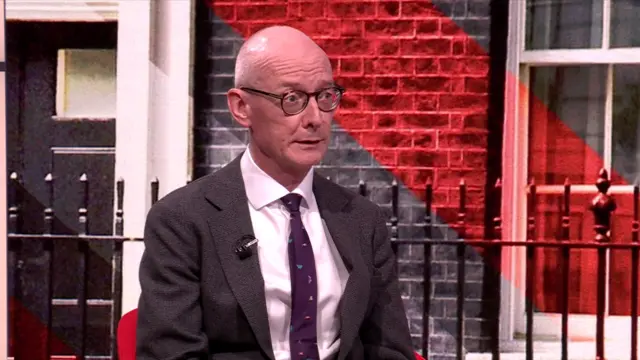Do you accept Brexit made things more difficult for many businesses, Sunak askedpublished at 09:43 BST 30 June 2024
Laura asks Sunak about the long-term impact of Brexit.
Your old bosses at Goldman Sachs say the UK is underperforming because of Brexit, she says.
Sunak says he was proud to support Brexit.
He claims that when it comes to exports we have overtaken some other European countries - thanks to freedoms we have from Brexit such as cutting red tape.
Laura asks again - do you accept Brexit has made things more difficult for many businesses?
He replies that of course it changes your trading relationship.
But he repeats the claims the the UK has overtaken some other European countries to become fourth largest exporter in the world.


